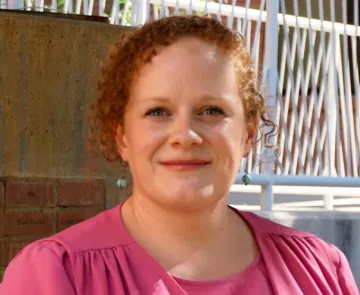Kristina M. Currans, Assistant Professor of Urban Planning, University of Arizona
When
Where

Abstract: Conventional practices evaluating transportation impacts of land development often overlook the substantial evidence that oversupplied parking further induces vehicle use, especially in areas with existing robust alternative-mode accessibility. In this lecture, we examine the relationship between residential parking supply and household vehicle use, starting from the literature and extending into applied examples. While conventional engineering and planning practices have historically treated parking as static mitigation for addressing the transportation impacts of new development, our work indicates that parking supply is and should be treated as a dynamic characteristic of the built environment and a policy-lever for reducing vehicle use in urban, multimodal areas. This lecture synthesizes several previous and ongoing projects aimed at improving how we understand and accommodate the transportation impacts of new development.
Biography: Kristina M. Currans received her Ph.D. from Portland State University in Civil Engineering and is currently an Assistant Professor of Urban Planning in UA CAPLA. In her research, Prof. Currans explores the intersection between travel behavior and land development, between transportation planning and engineering. She aims to understand why, where, and how people do activities through space and time, and how that knowledge can be translated in practical ways that help cities’ build towards their communities’ goals and objectives. Prof. Currans is the UA executive member for the federal University Transportation Center, the National Institute for Transportation and Communities, a Deputy Director for the UA Transportation Research Institute, and Assistant Director of the Center for Applied Transportation Sciences (CATS). Her ongoing interests include: exploring the implications and use of new technologies (shared e-scooters, e-commerce apps, and provisioning programs) on urban infrastructure, multimodal travel, and accessibility; examining the relationships between the availability of multimodal transportation infrastructure impacts transportation choices (e.g., drive, walk, bike); and translating research into lessons and tools for local agencies to help them move toward their regional, city, and neighborhood transportation goals.

